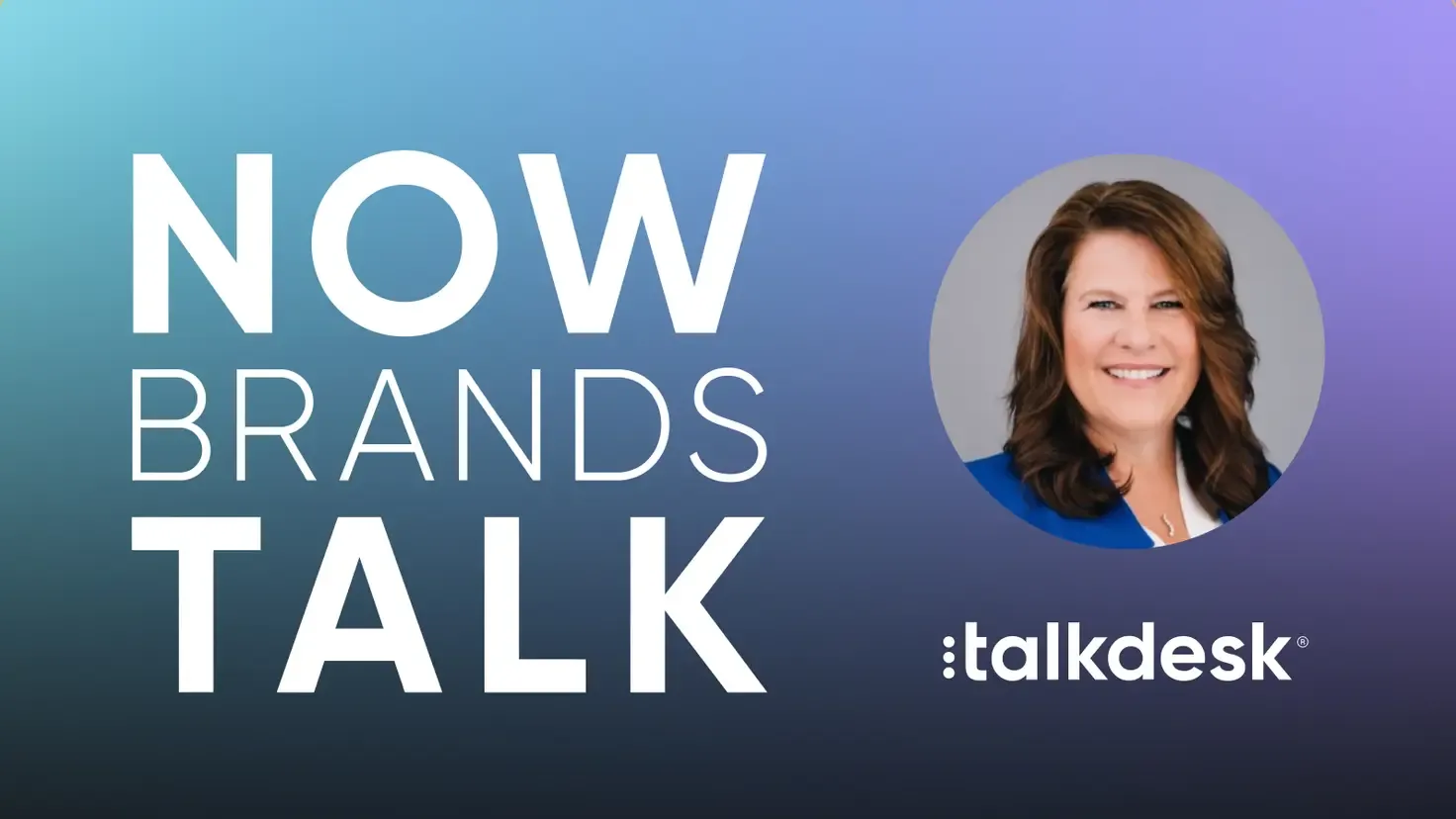
Guide to interviewing AI Agents
What makes an AI Agent different from the typical chatbots you’ve used in the past? Is the impact on ROI really that high?
Learn More

To provide the best possible customer experience, contact center agents have to be able to really understand customer needs and respond in the right “language”. This requires more than a surface level knowledge — or one-size-fits-all tools.
This week’s podcast guest has a unique perspective into how verticalization can help contact centers improve the overall experience for both agents and customers. Kathie Johnson , CMO Talkdesk , spoke about the company’s approach to building vertical-specific products and the CX-boosting power of reducing the “swivel chair” effect for agents. Because while swivel chairs may seem fun for a minute, it’s not fun (or productive) to interact with a platform that makes your head spin.
Find this episode of Now Brands Talk on your favorite podcasting platform.
Tune inDelivering exceptional experiences requires taking the time to get to know the customer. For a company like Talkdesk, that helps businesses across multiple industries support their own customers (B2B2C, as Ruth puts it), that’s no small task. Each industry has its own unique tools, workflows, and technical requirements.
While some contact centers will customize solutions for industry needs, Talkdesk goes a step further — seeking out industry and sub-vertical expertise and then creating purpose-built products for key use cases.
"Customer obsession is one of our core foundational values. That means we need to listen to our customers and offer them purpose-built solutions or products, so they can provide the best experience for their own customers."


Vertical customization is critical to Talkdesk’s strategy. “We have industry-specific research and insights, customer advisory boards, and customer communities,” Kathie explains. Input from these sources helps product designers identify the most difficult use cases to solve for and also informs decisions on strategy, communication, and product positioning. Designing agent-side products to meet unique customer needs in turn helps agents “speak the language” of their customers.
Within the overarching brand, Talkdesk has carefully developed a myriad of industry-specific sub-brands to establish expertise and give end customers meaningful, worthwhile experiences. The company strives to uncover the interaction patterns that occur in each industry — purposefully breaking the “echo chamber” that B2B businesses so often find themselves in.
According to Kathie, when industry branding aligns well with product marketing, a powerful synergy occurs. Customers get what they need through curated, research-backed automated interactions, while businesses using Talkdesk get a standardized, employee-friendly SaaS product. This simultaneous differentiation and integration of various industries is what has made Talkdesk so successful.
"When building a brand within industries, you need to get out of your echo chamber and into those industries to understand them and what is needed."


So how does this look in practice? One of Talkdesk’s key industries is healthcare, which relies heavily on technology to facilitate patient experiences — including legacy systems. One such tool that many providers rely on is Epic, a non-SaaS software product that offers secure access to medical records.
Integrating all the necessary tools for the healthcare provider sub-vertical into the agent interface in a way that’s compliant, efficient, and user-friendly — with everything in one place — was a unique challenge, but they did it. Talkdesk is the only CCaaS company to offer an out-of-the box Epic integration for providers.
"Purpose-built industry products create a single pane of glass for agents, making it easier for them to offer their customers a superior experience."


The key to making an impact with end users is to gain industry expertise, design products based on that insight, and wrap it all up into the agent experience. Set them up for success with industry-specific workflows, integrations, and pre-trained AI. “When you have industry specific language built into the product,” Kathie explains, “agents don’t have to translate for themselves.”
As your direct link to customers, agents can also provide critical insight to guide product development. Offering highly customized experiences makes life better for everyone – contact center customers, agents, and end customers.
To hear our full conversation with Kathie, check out this week’s episode on YouTube or listen on your favorite podcast platform. Dig deeper into:
Hungry for more? Find more episodes of Now Brands Talk on your favorite podcasting plaform.
Tune in